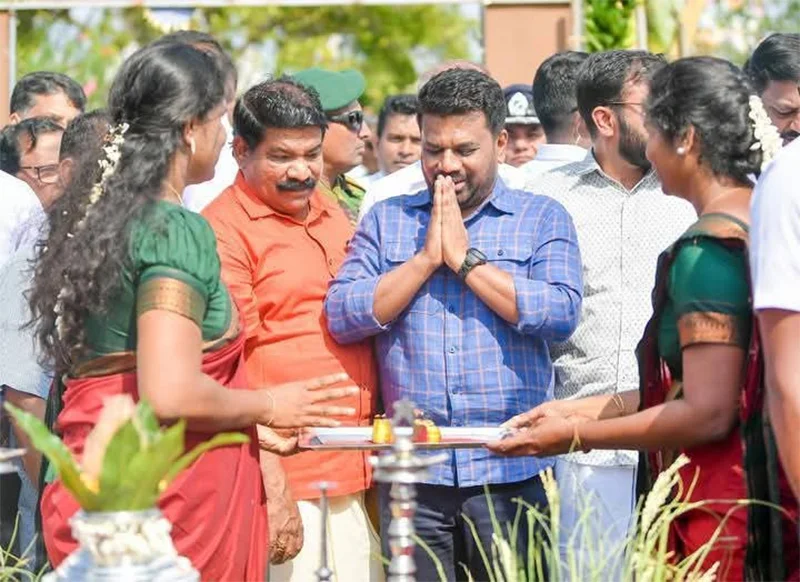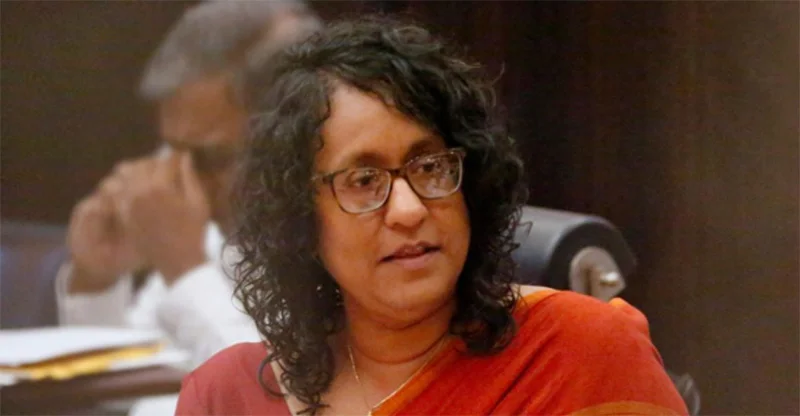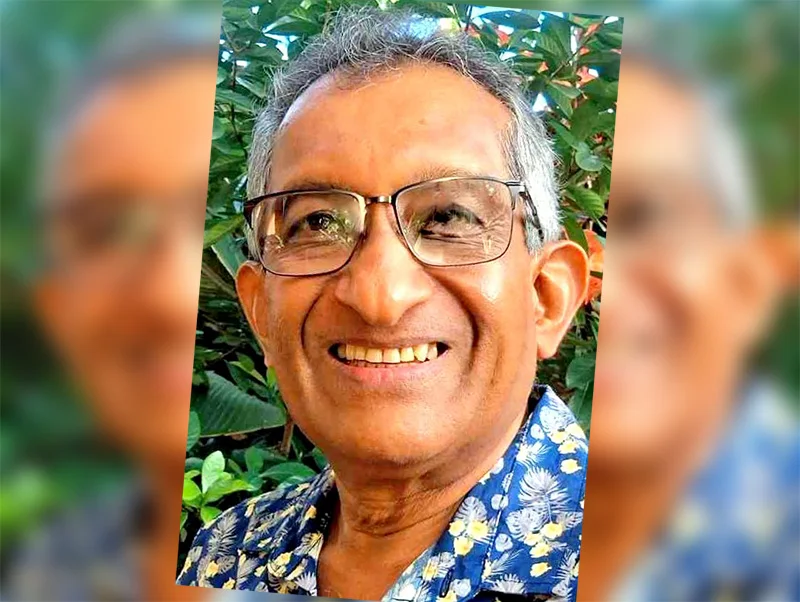Features
The social responsibility of a professional

How would a professional well respected at home feel in such a hostile environment? Material benefits alone without job satisfaction cannot make a professional happy and content. I know many of my medical colleagues working abroad are eagerly waiting to return home at the earliest opportunity, if the situation here is conducive.
By Dr. Sarath Gamini De Silva
(Motivational Speech Delivered at the Convocation of the Law Graduates of the University of Colombo on 19th December, 2021 at the BMICH.)
I wholeheartedly congratulate the new graduates for completing your tertiary education and entering society as productive citizens. Notwithstanding your superior academic capabilities, it is indeed an achievement to have completed your tertiary education at troubled times like these, when education in general had come to a virtual standstill for the majority of the younger generation. I have no doubt that your graduation is long overdue due to no fault of your own. The very problems and delays in the system has led to the waste of much of your childhood, adolescence and early adulthood. The frustration of such delays, compounded by the COVID-19 pandemic, must weigh heavily on your outlook on life. Most of you will become practising lawyers in courts of law, while others may continue in allied fields. Some of you may enter politics, a field in which many past luminaries of your profession have left an indelible mark.
You are now on the verge of being admitted to a very old, much respected profession, one of three learned professions recognized from mediaeval and early modern times, the other two being divinity and medicine. While we in the medical profession are expected to ensure good physical and mental health in the individual and the community, you in the legal field are supposed to promote good societal health by ensuring that justice is done without discrimination, thereby helping to create a law abiding society where all are deemed equal.
It is important at this stage to differentiate between a job and a profession.
A job is a role of a person in a society, for which a definite payment is made for a particular number of hours worked. Even without any training beforehand, one can learn on the job and can also be terminated by the employer at any time.
A profession, on the other hand, is defined as an occupation, at times life-long, founded upon specialised educational training, the purpose of which is to provide disinterested objective counsel and service to others, for direct and definite compensation, wholly apart from expectation of other personal gain. A professional is expected to work towards maintaining and uplifting the standards of the profession as well. There are well established codes of conduct and ethics to guide a professional, the breach of which can be punished by a statutory body which may even compel the professional to cease practice altogether.
By now you should be aware that many things are going wrong in our beloved motherland. You may have suffered already, due to various irregularities which have been blamed on the political leadership and the subservient populace. From the moment you entered Grade 1 in school until you completed your university education, you must have faced many undesirable influences, compelling you, at times, to act against your own conscience. Our system of free education has had little adaptation, over the years, to meet present day and future needs. Being mainly focused on passing examinations, there is hardly any emphasis on character building, developing good attitudes or learning to interact with others, leading to a society with peaceful co-existence. The younger generation is ill-prepared by such education to be useful, law-abiding members of the society. I believe undesirable attitudes developed in formative years are unlikely to be corrected easily in adult life. Accumulating knowledge without developing the wisdom to use it is of little value. The new normal of virtual or on-line education can only make matters worse, producing self-centred individuals growing up in isolation.
Most of you have been beneficiaries of free education throughout. However it should be kept
in mind that a significant proportion of the younger generation today studying in private, so-called international schools, have not benefited from free education until and unless they enter a state university. This could be a matter of personal choice or more likely due to the lack of access to a good state school.
You have been fortunate enough to reap the full benefit of free university education as well, overcoming many restrictions and other obstacles that could have prevented you from securing it. It should be borne in mind that many deserving students have been denied this opportunity due to merit determining only 40 percent of university admissions. I consider you as having made the best use of free education while a significant section of the society appears not to have made full use of that opportunity.
We are products of this society. If you have imbibed everything that is bad, then you will continue to indulge in and propagate bad behaviour. When you see how less educated people make a fortune, often through antisocial activity, and live in luxury, you too would get disheartened and be tempted to become dishonest. This would not happen if you have a good upbringing. One has to make a genuine effort not to fall into that precipice while trying one’s best to address those issues and rectify them wherever possible. With rampant lawlessness at all levels in the society it is not surprising that these shortcomings remain uncorrected. How those who openly break laws escape without punishment and remain free to continue as they like, is an insult to law abiding citizens.
My own medical profession is at the receiving end of much blame for not meeting the high expectations of the people. An outsider like me need not deal with shortcomings in your profession that should be obvious to any honest observer with common sense. Your purpose in life should be to assist in delivering justice to the common man, without leaving him financially bankrupt after unnecessarily prolonged litigation. Please do keep in mind that justice delayed is justice denied. A few errant members can tarnish the reputation of an entire profession.
Many of you may consider leaving the country at the earliest opportunity, to escape the evils of the motherland. Such a move could ensure an economically secure future with good education for your children. But think of the different set of problems one is likely to face abroad. With the social upheaval taking place everywhere, aggravated by the COVID-19 pandemic and resultant unemployment, there is increasing animosity towards the immigrant community, in the developed world. Physical harm in public places and racial slurs at the workplace are all too common. Whether a professional or otherwise, immigrants remain second class citizens. How would a professional, well respected at home, feel in such a hostile environment? Material benefits alone, without job satisfaction, cannot make a professional happy and content. I know that many of my medical colleagues working abroad are eagerly waiting to return home at the earliest opportunity, provided the situation here becomes conducive.
It is your bounden duty to give back to the motherland what its citizens have given you, for it was they who provided the tax money to pay for your free education. I agree that for you to serve the nation properly, the state should maintain a system of fair play and justice as well as opportunities for progress for yourself and your progeny.
It may appear to be the easier option to leave the country with a defeatist attitude, but your obligation, individually or as a group, is to strive and rectify the many maladies affecting our society. Being in the legal profession you are best equipped and better positioned to do so.
It is sad to say that many professionals taking to politics, including many from your own field, have performed no better than the average less educated politician. Why should a qualified lawyer, or for that matter any professional, sacrifice all his learning, integrity and dignity to please his political masters by agreeing to and actively promoting policies which obviously go against the basic principles of justice and democracy? It is really depressing to see how legal luminaries with political power have allowed or actively promoted many legislations which any person with common sense can see are detrimental to the functioning of a democracy. It is unfortunate that they have placed safeguarding of their own future in politics ahead of the welfare of the nation.
It is common knowledge in the medical community that some of our own colleagues, perhaps at the behest of interfering authorities, are disseminating misinformation among the public on various health related matters. That could cause more harm as the public is more likely to believe even falsehoods coming from reputed professionals while ignoring similar information conveyed by an ignorant politician.
While appreciating their dilemma in being obliged to obey the commands of higher authorities, it must be acknowledged that in doing so they abrogate their primary responsibility to provide disinterested, objective counsel and service, which amounts to professional misconduct. As such, ideally professionals should refrain from holding positions where their opinion is not solicited or respected and are expected to slavishly obey irregular or even unlawful orders of their political masters.
Many ills in the society may be minimised if those practising law and the judiciary take an upright position and are not swayed by various outside influences. That will provide a solid rock on which a healthy society with justice and fair play could stand. Any suspicion, in the minds of the people, of a breach in that noble concept could be a catalyst for much unrest and instability.
It has been said that there are three categories of people; those who make things happen, those who watch things happen and those who suddenly wake up wondering what has happened. I sincerely hope that you belong to the first category, making things happen for the betterment of all. Let me conclude by wishing you every success in your chosen career, with the hope that you will be exemplary citizens your countrymen could depend on and be proud of.
Features
Ethnic-related problems need solutions now

In the space of 15 months, President Anura Kumara Dissanayake has visited the North of the country more than any other president or prime minister. These were not flying visits either. The president most recent visit to Jaffna last week was on the occasion of Thai Pongal to celebrate the harvest and the dawning of a new season. During the two days he spent in Jaffna, the president launched the national housing project, announced plans to renovate Palaly Airport, to expedite operations at the Kankesanthurai Port, and pledged once again that racism would have no place in the country.
There is no doubt that the president’s consistent presence in the north has had a reassuring effect. His public rejection of racism and his willingness to engage openly with ethnic and religious minorities have helped secure his acceptance as a national leader rather than a communal one. In the fifteen months since he won the presidential election, there have been no inter community clashes of any significance. In a country with a long history of communal tension, this relative calm is not accidental. It reflects a conscious political choice to lower the racial temperature rather than inflame it.
But preventing new problems is only part of the task of governing. While the government under President Dissanayake has taken responsibility for ensuring that anti-minority actions are not permitted on its watch, it has yet to take comparable responsibility for resolving long standing ethnic and political problems inherited from previous governments. These problems may appear manageable because they have existed for years, even decades. Yet their persistence does not make them innocuous. Beneath the surface, they continue to weaken trust in the state and erode confidence in its ability to deliver justice.
Core Principle
A core principle of governance is responsibility for outcomes, not just intentions. Governments do not begin with a clean slate. Governments do not get to choose only the problems they like. They inherit the state in full, with all its unresolved disputes, injustices and problemmatic legacies. To argue that these are someone else’s past mistakes is politically convenient but institutionally dangerous. Unresolved problems have a habit of resurfacing at the most inconvenient moments, often when a government is trying to push through reforms or stabilise the economy.
This reality was underlined in Geneva last week when concerns were raised once again about allegations of sexual abuse that occurred during the war, affecting both men and women who were taken into government custody. Any sense that this issue had faded from international attention was dispelled by the release of a report by the Office of the Human Rights High Commissioner titled “Sri Lanka: Report on conflict related sexual violence”, dated 13.01.26. Such reports do not emerge in a vacuum. They are shaped by the absence of credible domestic processes that investigate allegations, establish accountability and offer redress. They also shape international perceptions, influence diplomatic relationships and affect access to cooperation and support.
Other unresolved problems from the past continue to fester. These include the continued detention of Tamil prisoners under the Prevention of Terrorism Act, in some cases for many years without conclusion, the failure to return civilian owned land taken over by the military during the war, and the fate of thousands of missing persons whose families still seek answers. These are not marginal issues even when they are not at the centre stage. They affect real lives and entire communities. Their cumulative effect is corrosive, undermining efforts to restore normalcy and rebuild confidence in public institutions.
Equal Rights
Another area where delay will prove costly is the resettlement of Malaiyaha Tamil communities affected by the recent cyclone in the central hills, which was the worst affected region in the country. Even as President Dissanayake celebrated Thai Pongal in Jaffna to the appreciation of the people there, Malaiyaha Tamils engaged in peaceful campaigns to bring attention to their unresolved problems. In Colombo at the Liberty Roundabout, a number of them gathered to symbolically celebrate Thai Pongal while also bringing national attention to the issues of their community, in particular the problem of displacement after the cyclone.
The impact of the cyclone, and the likelihood of future ones under conditions of climate change, make it necessary for the displaced Malaiyaha Tamils to be found new places of residence. This is also an opportunity to tackle the problem of their landlessness in a comprehensive manner and make up for decades if not two centuries of inequity.
Planning for relocation and secure housing is good governance. This needs to be done soon. Climate related disasters do not respect political timetables. They punish delay and indecision. A government that prides itself on system change cannot respond to such challenges with temporary fixes.
The government appears concerned that finding new places for the Malaiyaha Tamil people to be resettled will lead to land being taken away from plantation companies which are said to be already struggling for survival. Due to the economic crisis the country has faced since it went bankrupt in 2022, the government has been deferential to the needs of company owners who are receiving most favoured treatment. As a result, the government is contemplating solutions such as high rise apartments and townhouse style housing to minimise the use of land.
Such solutions cannot substitute for a comprehensive strategy that includes consultations with the affected population and addresses their safety, livelihoods and community stability.
Lose Trust
Most of those who voted for the government at the last elections did so in the hope that it would bring about system change. They did not vote for the government to reinforce the same patterns that the old system represented. At its core, system change means rebalancing priorities. It means recognising that economic efficiency without social justice is a short-term gain with long-term costs. It means understanding that unresolved ethnic grievances, unaddressed wartime abuses and unequal responses to disaster will eventually undermine any development programme, no matter how well designed. Governance that postpones difficult decisions may buy time, but lose trust.
The coming year will therefore be decisive. The government must show that its commitment to non racism and inclusion extends beyond conflict prevention to conflict resolution. Addressing conflict related abuses, concluding long standing detentions, returning land, accounting for the missing and securing dignified resettlement for displaced communities are not distractions from the government programme. They are central to it. A government committed to genuine change must address the problems it inherited, or run the risk of being overwhelmed when those problems finally demand settlement.
by Jehan Perera
Features
Education. Reform. Disaster: A Critical Pedagogical Approach

 This Kuppi writing aims to engage critically with the current discussion on the reform initiative “Transforming General Education in Sri Lanka 2025,” focusing on institutional and structural changes, including the integration of a digitally driven model alongside curriculum development, teacher training, and assessment reforms. By engaging with these proposed institutional and structural changes through the parameters of the division and recognition of labour, welfare and distribution systems, and lived ground realities, the article develops a critical perspective on the current reform discourse. By examining both the historical context and the present moment, the article argues that these institutional and structural changes attempt to align education with a neoliberal agenda aimed at enhancing the global corporate sector by producing “skilled” labour. This agenda is further evaluated through the pedagogical approach of socialist feminist scholarship. While the reforms aim to produce a ‘skilled workforce with financial literacy,’ this writing raises a critical question: whose labour will be exploited to achieve this goal? Why and What Reform to Education
This Kuppi writing aims to engage critically with the current discussion on the reform initiative “Transforming General Education in Sri Lanka 2025,” focusing on institutional and structural changes, including the integration of a digitally driven model alongside curriculum development, teacher training, and assessment reforms. By engaging with these proposed institutional and structural changes through the parameters of the division and recognition of labour, welfare and distribution systems, and lived ground realities, the article develops a critical perspective on the current reform discourse. By examining both the historical context and the present moment, the article argues that these institutional and structural changes attempt to align education with a neoliberal agenda aimed at enhancing the global corporate sector by producing “skilled” labour. This agenda is further evaluated through the pedagogical approach of socialist feminist scholarship. While the reforms aim to produce a ‘skilled workforce with financial literacy,’ this writing raises a critical question: whose labour will be exploited to achieve this goal? Why and What Reform to Education
In exploring why, the government of Sri Lanka seeks to introduce reforms to the current education system, the Prime Minister and Minister of Education, Higher Education, and Vocational Education, Dr. Harini Amarasuriya, revealed in a recent interview on 15 January 2026 on News First Sri Lanka that such reforms are a pressing necessity. According to the philosophical tradition of education reform, curriculum revision and prevailing learning and teaching structures are expected every eight years; however, Sri Lanka has not undertaken such revisions for the past ten years. The renewal of education is therefore necessary, as the current system produces structural issues, including inequality in access to quality education and the need to create labour suited to the modern world. Citing her words, the reforms aim to create “intelligent, civil-minded citizens” in order to build a country where people live in a civilised manner, work happily, uphold democratic principles, and live dignified lives.
Interpreting her narrative, I claim that the reform is intended to produce, shape, and develop a workforce for the neoliberal economy, now centralised around artificial intelligence and machine learning. My socialist feminist perspective explains this further, referring to Rosa Luxemburg’s reading on reforms for social transformation. As Luxemburg notes, although the final goal of reform is to transform the existing order into a better and more advanced system: The question remains: does this new order truly serve the working class? In the case of education, the reform aims to transform children into “intelligent, civil-minded citizens.” Yet, will the neoliberal economy they enter, and the advanced technological industries that shape it, truly provide them a better life, when these industries primarily seek surplus profit?
History suggests otherwise. Sri Lanka has repeatedly remained at the primary manufacturing level within neoliberal industries. The ready-made garment industry, part of the global corporate fashion system, provides evidence: it exploited both manufacturing labourers and brand representatives during structural economic changes in the 1980s. The same pattern now threatens to repeat in the artificial intelligence sector, raising concerns about who truly benefits from these education reforms
That historical material supports the claim that the primary manufacturing labour for the artificial intelligence industry will similarly come from these workers, who are now being trained as skilled employees who follow the system rather than question it. This context can be theorised through Luxemburg’s claim that critical thinking training becomes a privileged instrument, alienating the working class from such training, an approach that neoliberalism prefers to adopt in the global South.
Institutional and Structural Gaps
Though the government aims to address the institutional and structural gaps, I claim that these gaps will instead widen due to the deeply rooted system of uneven distribution in the country. While agreeing to establish smart classrooms, the critical query is the absence of a wide technological welfare system across the country. From electricity to smart equipment, resources remain inadequate, and the government lags behind in taking prompt initiative to meet these requirements.
This issue is not only about the unavailability of human and material infrastructure, but also about the absence of a plan to restore smart normalcy after natural disasters, particularly the resumption of smart network connections. Access to smart learning platforms, such as the internet, for schoolchildren is a high-risk factor that requires not only the monitoring of classroom teachers but also the involvement of the state. The state needs to be vigilant of abuses and disinformation present in the smart-learning space, an area in which Sri Lanka is still lagging. This concern is not only about the safety of children but also about the safety of women. For example, the recent case of abusive image production via Elon Musk’s AI chatbox, X, highlights the urgent need for a legal framework in Sri Lanka.
Considering its geographical location, Sri Lanka is highly vulnerable to natural disasters, the frequency in which they occur, increasing, owing to climate change. Ditwah is a recent example, where villages were buried alive by landslides, rivers overflowed, and families were displaced, losing homes that they had built over their lifetimes. The critical question, then, is: despite the government’s promise to integrate climate change into the curriculum, how can something still ‘in the air ‘with climate adaptation plans yet to be fully established, be effectively incorporated into schools?
Looking at the demographic map of the country, the expansion of the elderly population, the dependent category, requires attention. Considering the physical and psychological conditions of this group, fostering “intelligent, civic-minded” citizens necessitates understanding the elderly not as a charity case but as a human group deserving dignity. This reflects a critical reading of the reform content: what, indeed, is to be taught? This critical aspect further links with the next section of reflective of ground reality.
Reflective Narrative of Ground Reality
Despite the government asserting that the “teacher” is central to this reform, critical engagement requires examining how their labour is recognised. In Sri Lanka, teachers’ work has long been tied to social recognition, both utilised and exploited, Teachers receive low salaries while handling multiple roles: teaching, class management, sectional duties, and disciplinary responsibilities.
At present, a total teaching load is around 35 periods a week, with 28 periods spent in classroom teaching. The reform adds continuous assessments, portfolio work, projects, curriculum preparation, peer coordination, and e-knowledge, to the teacher’s responsibilities. These are undeclared forms of labour, meaning that the government assigns no economic value to them; yet teachers perform these tasks as part of a long-standing culture. When this culture is unpacked, the gendered nature of this undeclared labour becomes clear. It is gendered because the majority of schoolteachers are women, and their unpaid roles remain unrecognised. It is worth citing some empirical narratives to illustrate this point:
“When there was an extra-school event, like walks, prize-giving, or new openings, I stayed after school to design some dancing and practice with the students. I would never get paid for that extra time,” a female dance teacher in the Western Province shared.
I cite this single empirical account, and I am certain that many teachers have similar stories to share.
Where the curriculum is concerned, schoolteachers struggle to complete each lesson as planned due to time constraints and poor infrastructure. As explained by a teacher in the Central Province:
“It is difficult to have a reliable internet connection. Therefore, I use the hotspot on my phone so the children can access the learning material.”
Using their own phones and data for classroom activities is not part of a teacher’s official duties, but a culture has developed around the teaching role that makes such decisions necessary. Such activities related to labour risks further exploitation under the reform if the state remains silent in providing the necessary infrastructure.
Considering that women form the majority of the teaching profession, none of the reforms so far have taken women’s health issues seriously. These issues could be exacerbated by the extra stress arising from multiple job roles. Many female teachers particularly those with young children, those in peri- or post-menopause stages of their life, or those with conditions like endometriosis may experience aggravated health problems due to work-related stress intensified by the reform. This raises a critical question: what role does the state play in addressing these issues?
In Conclusion
The following suggestions are put forward:
First and foremost, the government should clearly declare the fundamental plan of the reform, highlighting why, what, when, and how it will be implemented. This plan should be grounded in the realities of the classroom, focusing on being child-centred and teacher-focused.
Technological welfare interventions are necessary, alongside a legal framework to ensure the safety and security of accessing the smart, information-centred world. Furthermore, teachers’ labour should be formally recognised and assigned economic value. Currently, under neoliberal logic, teachers are often left to navigate these challenges on their own, as if the choice is between survival or collapse.
Aruni Samarakoon teaches at the Department of Public Policy, University of Ruhuna
Kuppi is a politics and pedagogy happening on the margins of the lecture hall that parodies, subverts, and simultaneously reaffirms social hierarchies.
By Aruni Samarakoon
Features
Smartphones and lyrics stands…

 Diliup Gabadamudalige is, indeed, a maestro where music is concerned, and this is what he had to say, referring to our Seen ‘N’ Heard in The Island of 6th January, 2026, and I totally agree with his comments.
Diliup Gabadamudalige is, indeed, a maestro where music is concerned, and this is what he had to say, referring to our Seen ‘N’ Heard in The Island of 6th January, 2026, and I totally agree with his comments.
Diliup: “AI avatars will take over these concerts. It will take some time, but it surely will happen in the near future. Artistes can stay at home and hire their avatar for concerts, movies, etc. Lyrics and dance moves, even gymnastics can be pre-trained”.
Yes, and that would certainly be unsettling as those without talent will make use of AI to deceive the public.
Right now at most events you get the stage crowded with lyrics stands and, to make matters even worse, some of the artistes depend on the smartphone to put over a song – checking out the lyrics, on the smartphone, every few seconds!
In the good ole days, artistes relied on their talent, stage presence, and memorisation skills to dominate the stage.
They would rehearse till they knew the lyrics by heart and focus on connecting with the audience.

Smartphones and lyrics stands: A common sight these days
The ability of the artiste to keep the audience entertained, from start to finish, makes a live performance unforgettable That’s the magic of a great show!
When an artiste’s energy is contagious, and they’re clearly having a blast, the audience feeds off it and gets taken on an exciting ride. It’s like the whole crowd is vibing on the same frequency.
Singing with feeling, on stage, creates this electric connection with the audience, but it can’t be done with a smartphone in one hand and lyrics stands lined up on the stage.
AI’s gonna shake things up in the music scene, for sure – might replace some roles, like session musicians or sound designers – but human talent will still shine!
AI can assist, but it’s tough to replicate human emotion, experience, and soul in music.
In the modern world, I guess artistes will need to blend old-school vibes with new tech but certainly not with smartphones and lyrics stands!
-

 Editorial3 days ago
Editorial3 days agoIllusory rule of law
-

 News4 days ago
News4 days agoUNDP’s assessment confirms widespread economic fallout from Cyclone Ditwah
-

 Business6 days ago
Business6 days agoKoaloo.Fi and Stredge forge strategic partnership to offer businesses sustainable supply chain solutions
-

 Editorial4 days ago
Editorial4 days agoCrime and cops
-

 Features3 days ago
Features3 days agoDaydreams on a winter’s day
-

 Editorial5 days ago
Editorial5 days agoThe Chakka Clash
-

 Features3 days ago
Features3 days agoSurprise move of both the Minister and myself from Agriculture to Education
-

 Features2 days ago
Features2 days agoExtended mind thesis:A Buddhist perspective













